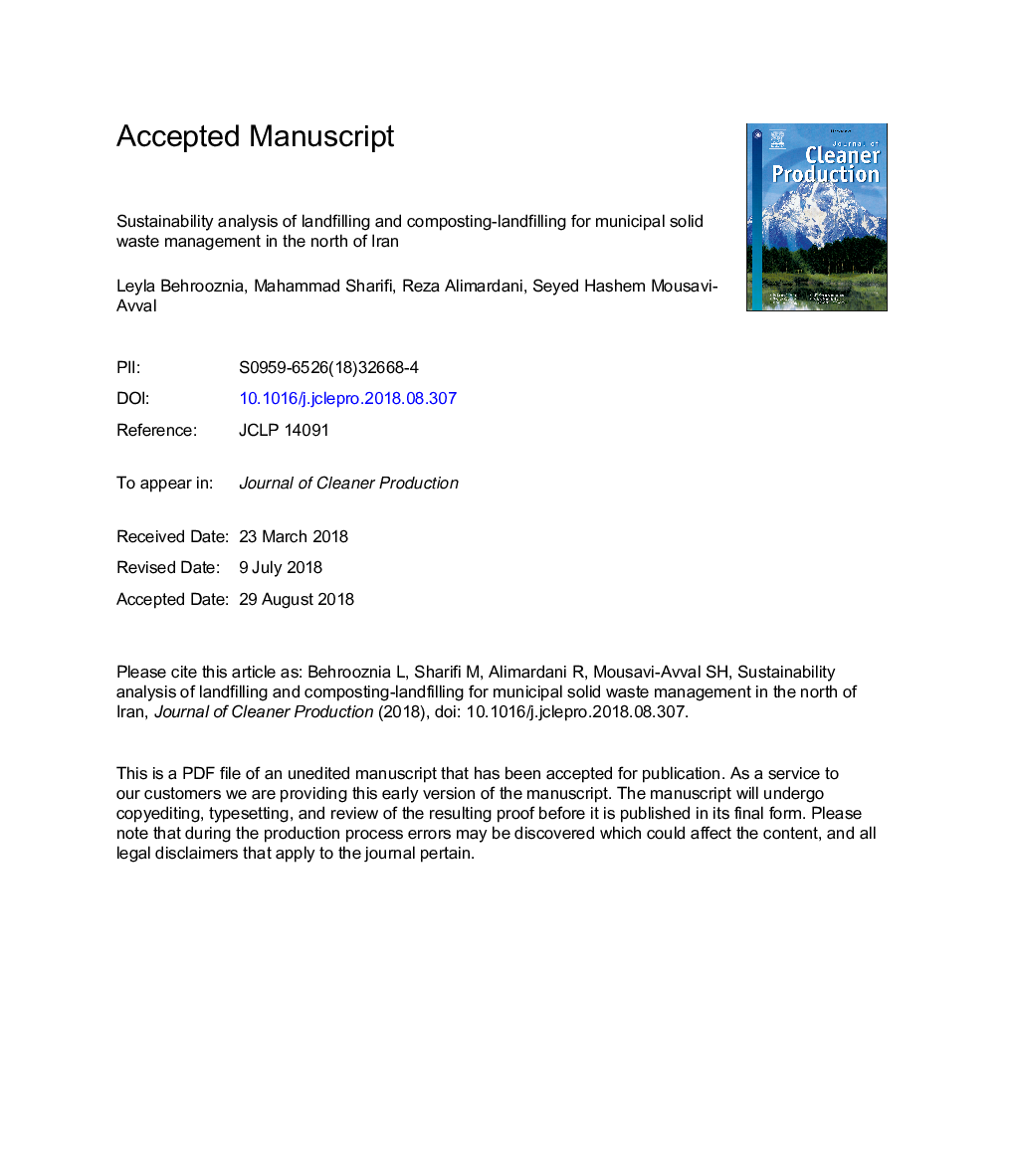| Article ID | Journal | Published Year | Pages | File Type |
|---|---|---|---|---|
| 10142669 | Journal of Cleaner Production | 2018 | 41 Pages |
Abstract
This study evaluates the energy use, exergy demand and the main hot spots of two municipal solid waste (MSW) management scenarios including landfilling (100% landfilling) and composting-landfilling (48% composting, 50.5% landfilling, 1.5% recycling), available in Rasht, Iran. The functional unit was defined as 100â¯t MSW. The system boundaries encompassed activities ranging from MSW collection in the city up to MSW burial in the landfill and delivery of compost and recyclable materials to the market. For quantifying the environmental impacts, 11 impact categories were analyzed using life cycle assessment methodology, and the outcomes of characterization and normalization of impact categories were interpreted. The results showed that total energy consumption for composting-landfilling was greater than that of landfilling (22.5 vs. 17.5 GJ/100tMSW). Composting-landfilling scenario showed avoided environmental emissions in the forms of abiotic depletion, terrestrial ecotoxicity and freshwater aquatic ecotoxicity associated with the production of compost; moreover, global warming potential, human toxicity, marine aquatic ecotoxicity, photochemical oxidation and acidification of landfilling scenario were found to be higher than those of composting-landfilling scenario by 495%, 239%, 49%, 679% and 669%, respectively. On the other hand, composting-landfilling scenario had higher fossil fuels abiotic depletion, ozone layer depletion and eutrophication potential. Transportation accounted for the highest contribution to overall environmental emissions in both of the investigated scenarios, demonstrating the importance of decreasing environmental burdens during this step. Overall, compared to landfilling scenario, the lower environmental burdens associated with composting-landfilling scenario make it more environmentally attractive.
Related Topics
Physical Sciences and Engineering
Energy
Renewable Energy, Sustainability and the Environment
Authors
Leyla Behrooznia, Mohammad Sharifi, Reza Alimardani, Seyed Hashem Mousavi-Avval,
